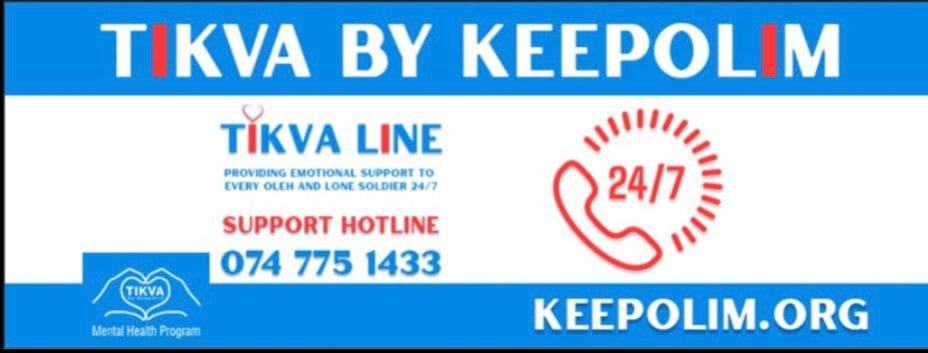As a BetterHelp affiliate, we receive compensation from BetterHelp if you purchase products or services through the links provided
Living under the constant thunder of guns and bombs is rough. The mental scars left by war are often overlooked, but they run deep and fester. So, how do we provide mental health support in such harsh environments? We asked five people who’ve been there to do that, and here’s the down-to-earth advice they shared:
• Community Support Groups: Forming local groups to share experiences and coping strategies is a real game-changer. When people come together, they find strength in numbers.
• Safe Sharing Spaces: It is crucial to create places where people can discuss what’s on their minds without fear. It’s about building trust and understanding.
• Training in Psychological First Aid: Teaching locals how to provide essential mental health support is empowering. It’s a step towards creating a community that can help itself.
• Online Counseling: The internet can be a lifeline. Online counseling can provide professional help, regardless of where someone is located.
• Telehealth Services: Telehealth and teletherapy are not just buzzwords. They are practical ways to extend mental health support to those in remote or war-torn areas.
Navigating through the storm of mental turmoil amidst war is no cakewalk. Yet, with the right kind of support, it becomes a journey of healing and resilience. Let’s delve into how these realistic strategies can make a significant difference in war-affected areas from the experts on the ground.
 1. Establish Community-Based Support Groups
1. Establish Community-Based Support Groups
In war-torn environments, mental health support is crucial yet challenging. One effective method I’ve observed is the establishment of community-based support groups. These are safe spaces where individuals can share experiences coping strategies, and find collective healing. By tapping into the community’s resilience, these groups provide immediate relief without requiring extensive resources.
Additionally, trained local volunteers can sometimes facilitate these sessions, ensuring cultural sensitivity. I recall a case in a conflict zone where such groups significantly reduced PTSD symptoms among participants. Prioritizing mental health in these contexts is essential for long-term community recovery.
Matthew Sims, Personal Injury Lawyer, Rapoport Weisberg & Sims, P.C.
2. Create Safe Spaces for Sharing
When most people think of mental health support within war-torn environments, they think of therapy. However, therapy is not the only way to support mental health.
One effective method is to create a safe space where people can talk about their experiences and support each other. We can do this in various ways, including through support groups, community centers, or even online forums.
Matthew Ramirez, Founder, USMLE Test Prep
3. Train Locals in Psychological First Aid
Providing or accessing mental health support within war-torn environments can be highly challenging because of the chaotic and often dangerous circumstances. However, one effective method to address mental health needs in such situations is by deploying mental health professionals and implementing of psychological first aid.
Train local individuals in basic psychological first-aid techniques, such as community leaders, teachers, or healthcare workers. This involves teaching them how to provide emotional support, listen empathetically, and identify individuals who may need more advanced care. These local individuals can act as a bridge between affected populations and professional mental health services.
In more stable areas, or when circumstances allow, send trained mental health professionals, such as psychiatrists, psychologists, and social workers, to the war-torn region. They can also work with local personnel to offer specialized care and interventions.
Joe Li, Managing Director, CheckYa
4. Leverage Telemedicine and Online Counseling
In conflict zones, access to traditional mental health services is often limited. Telemedicine and online counseling services can be invaluable, providing remote access to professional mental health support.
Additionally, community-based initiatives, peer support groups, and training community members in basic counseling skills can help address these areas’ widespread mental health needs.
Einav Biri, CEO, FARUZO
5. Implement Telehealth and Teletherapy Services
Telehealth and teletherapy services are effective ways to provide or get mental health help in war-torn areas. People in conflict zones can get counseling and support from trained professionals through these remote mental health services, which can be provided by phone or online.
To protect privacy and safety, organizations can set up safe ways for people to talk to each other. This method helps people get past physical barriers, lowers the shame of getting mental health help, and gives people who need emotional support during times of stress and conflict a way to get it.
Jay Toy, General Manager, 88stacks
 Emergency Care for the Mind: Navigating Mental Health During Crises
Emergency Care for the Mind: Navigating Mental Health During Crises
In volatile environments, particularly war-torn zones like we’re experiencing in Israel, addressing mental health becomes urgent. Traditional mental health resources may be scarce or unavailable. So what alternative routes can we take? Let’s delve into five effective methods suggested by thought leaders in various fields.
1. Establish Community-Based Support Groups
Matthew Sims, a personal injury lawyer, highlights the value of creating community-based support groups. In such groups, people can share their emotional burdens and coping strategies, empowering each other through collective wisdom. By relying on the community’s innate resilience, these gatherings offer immediate emotional relief, even without extensive resources. Trained local volunteers can facilitate these groups, adding a layer of cultural sensitivity.

2. Create Safe Spaces for Sharing
Matthew Ramirez, founder of USMLE Test Prep, argues that mental health support isn’t confined to professional therapy. The creation of safe spaces for dialogue is just as effective. This can manifest through local community centers, support groups, or online platforms where people can share their experiences and receive empathetic support.
3. Train Locals in Psychological First Aid
Joe Li, Managing Director at CheckYa, advocates for training locals in psychological first aid. Such a grassroots approach is advantageous because locals understand the cultural and social nuances better. They can identify people requiring more specialized care and serve as a bridge to professional services. Qualified mental health professionals can also offer specialized services in the region when possible.
4. Leverage Telemedicine and Online Counseling
With traditional mental health services often disrupted in conflict zones, telemedicine offers a lifeline. Einav Biri, CEO of FARUZO, emphasizes how online platforms can connect individuals to mental health professionals in real time. Community initiatives and peer-support groups can also benefit from online resources, broadening their reach.
5. Implement Telehealth and Teletherapy Services
Jay Toy, General Manager at 88stacks, points out the significant role of telehealth and teletherapy services. These remote options break down physical barriers, reduce stigma, and provide access to professional support from the safety of one’s home. Secure channels can be established to ensure privacy during these crucial conversations.
Tips for Immediate Implementation:
- Confirm Connectivity: Ensure you have a stable internet connection if you leverage telehealth options.
- Safety First: Always assess the safety of the location for community-based gatherings.
- Confidentiality: Make sure any online platform used adheres to privacy and confidentiality standards.
- Cultural Sensitivity: Always keep local customs and social norms in mind, especially when bringing in outside resources.
In the face of the overwhelming adversity of living in war-torn environments, these methods offer adaptable and immediate avenues for mental health support. The situation is challenging, but with resourcefulness and community engagement, support is within reach.

Urgent Alert: Recognizing When You or Your Loved Ones in Israel Need Immediate Mental Help
In the wake of the current terrorist attacks here in Israel, the emotional toll can be devastating. Whether you live here or have loved ones in the area, recognizing signs that mental health help is needed becomes crucial. If you notice any of the following signs, it’s time to seek immediate assistance:
Signs You or a Loved One May Need Mental Health Support:
- Excessive Anxiety or Panic Attacks: Uncontrollable fear that disrupts daily activities.
- Social Withdrawal: An unusual tendency to isolate oneself, even from close family and friends.
- Mood Swings: Rapid and intense changes in mood that seem disproportionate to the situation.
- Insomnia or Excessive Sleeping: Drastic changes in sleep patterns that interfere with daily life.
- Increased Substance Use: A noticeable uptick in the use of alcohol, drugs, or medication to cope.
- Cognitive Impairment: Difficulty focusing, remembering things, or making decisions.
- Physical Symptoms: Unexplained headaches, stomachaches, or other physical pains.
- Talking About Self-harm or Suicidal Thoughts: Expressing a desire to hurt oneself or discussing suicide.
 Turn to Tikva for Immediate Support
Turn to Tikva for Immediate Support
One of the lifelines available during this crisis is the Tikva Support Line. Tikva offers immediate, confidential assistance, catering to Non-Hebrew speakers ain over a dozen languages.
Tips for Reaching Out:
- Multilingual Support: Rest assured, Tikva accommodates non-Hebrew speakers, offering help in multiple languages.
- Immediate Access: Tikva is designed to provide immediate help in crises, so don’t hesitate to reach out 24 hours, 7 days a week, including shabbat.
- Confidentiality Assured: Tikva respects your privacy. Everything discussed remains confidential.
Recognizing the signs that mental health help is needed is the first critical step in initiating recovery. Resources like Tikva are invaluable in offering immediate relief and guidance. Keep a watchful eye on yourself and those around you; help is available, even in dire circumstances.
- 7 Ideas to Help You Relax and Unwind on a Family Vacation - April 27, 2025
- How Having Cybersecurity Protection Helps You Relax - April 25, 2025
- 8 Reasons Why Spending Time Outside Calms You Down - April 25, 2025
This site contains affiliate links to products. We will receive a commission for purchases made through these links.


 1. Establish Community-Based Support Groups
1. Establish Community-Based Support Groups Emergency Care for the Mind: Navigating Mental Health During Crises
Emergency Care for the Mind: Navigating Mental Health During Crises
